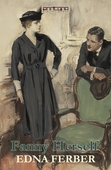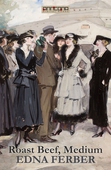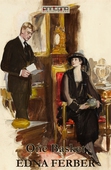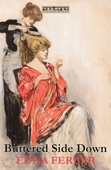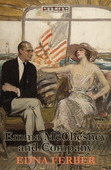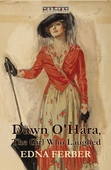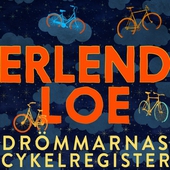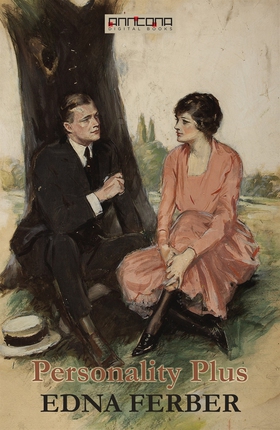
Lägg till önskelistan
Personality Plus e-bok
Pris
19 kr
Personality Plus (Emma McChesney trilogy #2) is an early novel by American author Edna Ferber. Originally published in 1914, Personality Plus is the second of three volumes chronicling the travels and events in the life of Emma McChesney. The first volume is Roast Beef, Medium (1913) and the third volume is Emma McChesney and Company (1915).
Ferber achieved her first successes with a series of stories centering on this character, a stylish and intelligent divorced mother who rises rapidly in...
E-Bok
19 kr
Pris
Ljudbok
65 kr
Pris
Förlag
Anncona Media
Utgiven
25 November 2015
Genrer
Romaner, Skönlitteratur
Språk
English
Format
epub
Kopieringsskydd
Vattenmärkt
ISBN
9789176055380
Personality Plus (Emma McChesney trilogy #2) is an early novel by American author Edna Ferber. Originally published in 1914, Personality Plus is the second of three volumes chronicling the travels and events in the life of Emma McChesney. The first volume is Roast Beef, Medium (1913) and the third volume is Emma McChesney and Company (1915).
Ferber achieved her first successes with a series of stories centering on this character, a stylish and intelligent divorced mother who rises rapidly in business.
After ten years on the road as the Midwestern sales representative for T.A. Buck’s Featherloom skirts and petticoats the savvy, stylish, tell-it-like-it-is Emma McChesney now shares a New York City apartment with her plucky 21-year-old son Jock. She shares this story with him too--Emma’s busy being T. A. Buck, Jr.’s business partner and Jock’s trying to break into 1914’s version of Mad Men by getting a job in the up and coming business of advertising.
Edna Ferber (1885-1968) was an American novelist, short story writer and playwright. Her novels were especially popular and included the Pulitzer Prize-winning So Big (1924), Show Boat (1926; made into the celebrated 1927 musical), Cimarron (1929; made into the 1931 film which won the Academy Award for Best Picture), and Giant (1952; made into the 1956 Hollywood movie).
Ferber's novels generally featured strong female protagonists, along with a rich and diverse collection of supporting characters. She usually highlighted at least one strong secondary character who faced discrimination ethnically or for other reasons; through this technique, Ferber demonstrated her belief that people are people and that the not-so-pretty people have the best character.

